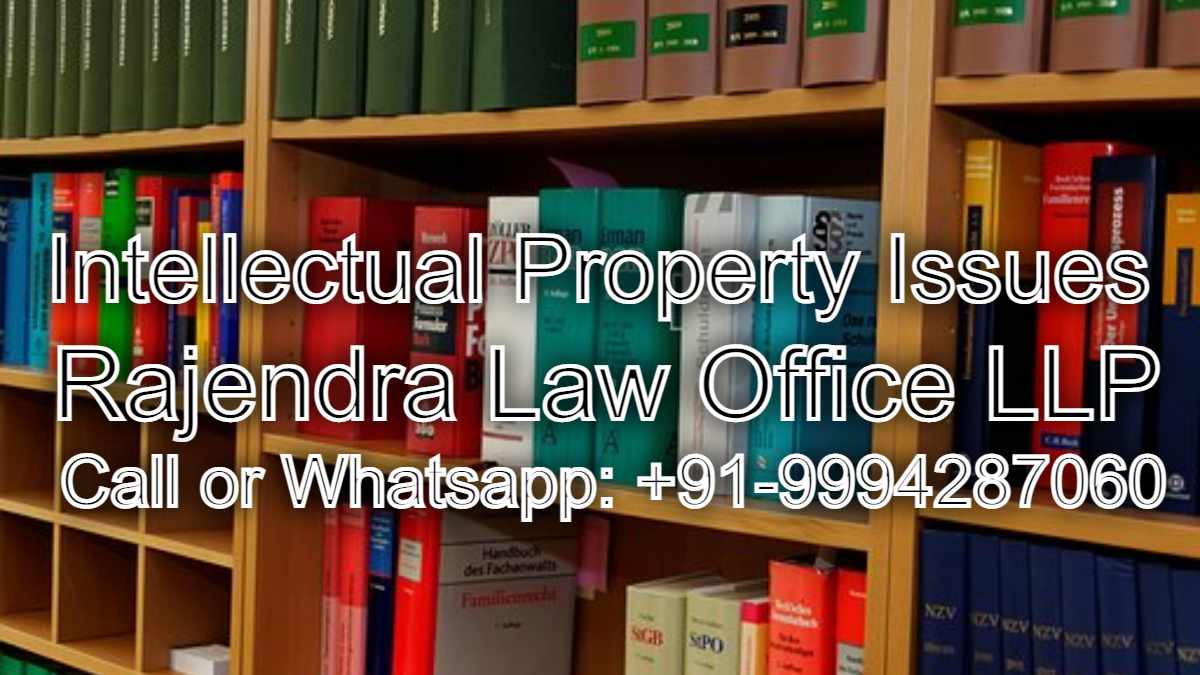Navigate the complexities of Intellectual Property Rights (IPR) law drafting with expertise from Rajendra Law Office LLP. Additionally, explore essential terms such as patents, trademarks, copyrights, trade secrets, and more. Furthermore, learn how to protect your inventions, brand identity, artistic creations, and confidential information. Understand concepts like infringement, licensing agreements, fair use, cease and desist letters, litigation, and enforcement. Moreover, mastering these terms empowers you to safeguard your intellectual property assets effectively. Lastly, partner with our expert attorneys to strengthen your legal strategy and ensure robust protection for your intellectual property rights.

Mastering these essential terms empowers you to navigate IPR law drafting with confidence and precision, ensuring robust protection for your intellectual property assets. Partner with expert attorneys at Rajendra Law Office LLP to strengthen your legal strategy and safeguard your intellectual property rights.
Mastering IPR Law Drafting: Essential Terms Explained – Rajendra Law Office LLP
Navigating legal jargon in Intellectual Property Rights (IPR) law drafting can be challenging. With expertise from Rajendra Law Office LLP, let’s explore key terms you should know:
- Patent: Protect your inventions and discoveries with patents, granting exclusive rights for a set period.
- Trademark: Safeguard your brand identity with trademarks, distinguishing your goods or services from others.
- Copyright: Preserve your artistic creations and original works with copyrights, granting exclusive rights for expression.
- Trade Secret: Maintain confidentiality and protect valuable information critical to your business’s success.
- Infringement: Understand the violation of intellectual property rights, safeguarding against unauthorized use or reproduction.
- Licensing Agreement: Establish terms for the authorized use of intellectual property, ensuring proper compensation and protection.
- Fair Use: Navigate exceptions to copyright law, permitting limited use of copyrighted material without permission.
- Cease and Desist Letter: Assert your rights and demand the termination of infringing activities through formal legal notice.
- Litigation: Resolve disputes regarding intellectual property rights through legal proceedings in court.
- Enforcement: In the domain of IPR Law Drafting, implement strategies to enforce intellectual property rights effectively. Furthermore, This includes combating infringement and safeguarding creators’ rights.
Intellectual Property FAQs: Expert Answers to Your Legal Questions
A patent grants exclusive rights to inventors for their inventions or discoveries for a specified period.
A trademark is a symbol, word, or phrase that distinguishes goods or services from others in the market.
In the realm of IPR Law Drafting, copyright protects original works of authorship. Meanwile, This includes literary, artistic, or musical creations, granting exclusive rights to the creator.
A trade secret is confidential information critical to a business’s success, such as formulas, processes, or customer lists.
Infringement occurs when someone violates intellectual property rights by using, reproducing, or distributing protected material without authorization.
A licensing agreement establishes terms for the authorized use of intellectual property, outlining permissions, royalties, and restrictions.
Fair use, in the context of IPR law drafting, refers to limited use of copyrighted material. Of course, This includes purposes such as criticism, comment, news reporting, teaching, or research.
A cease and desist letter is a formal notice demanding the cessation of infringing activities and threatening legal action if ignored.
Litigation involves resolving disputes related to intellectual property rights through legal proceedings in court.
Enforcement strategies involve legal actions and measures to protect and uphold intellectual property rights, such as cease and desist letters, litigation, and monitoring for infringement.
Understanding these frequently asked questions and answers equips you with essential knowledge to navigate IPR law drafting effectively, ensuring the protection and enforcement of your valuable assets. For personalized guidance and legal support in IPR law drafting, consult the expert attorneys at Rajendra Law Office LLP.
Read More
- Decoding Legal Jargon: Expert Guide to Understanding Drafting Documents
- Intellectual property rights Litigation: How to find the Best IPR Lawyers
- How to Handle Intellectual Property Issues in Chennai?
- Filing a Case against Trademark Violation: How to Protect Your Business?
- Intellectual Property Rights Litigation in India: Expert Attorneys
- WIPO – World Intellectual Property Organization
- Empower Your Drafting Skills: Master Legal Terminology in Family Law

